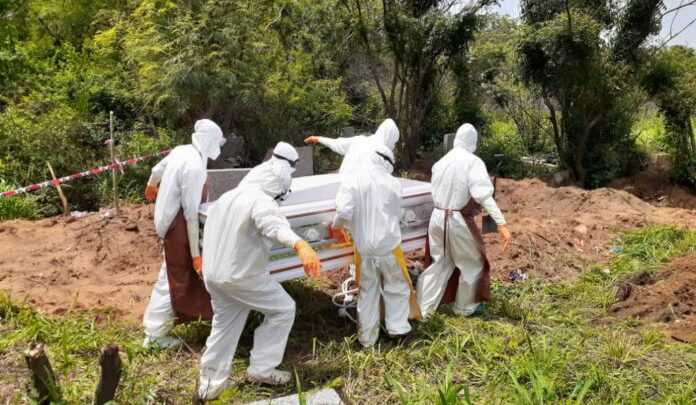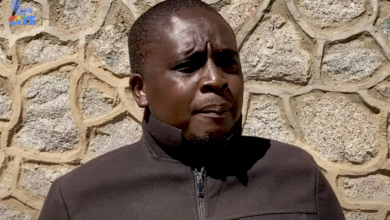
MORE than 10 thousand people are still dying of Covid-19 every day across the globe despite a decline in new infections for seven weeks in a row, the World Health Organisation (WHO) said Monday.
To date, the world has recorded 176 million cases of Covid-19 and 3.81 million deaths.
Zimbabwe in particular as of 14 June 2021, has 40 077 confirmed cases, including 37 027 recoveries and 1 635 deaths. A total of 693 568 people have been fully vaccinated against Covid-19 in the Southern African nation.
The country on Monday reported 118 new cases, all of which were local transmissions and three deaths while the seven day rolling average for new cases rose to 120 from 110 on the previous day.
This comes at a time when the government has tightened lockdown measures and indefinitely banned all gatherings save for funerals which are strictly limited to 30 people.
Briefing the media on Covid-19 Monday, WHO director-general Dr Tedros Adhanom Ghebreyesus said while weekly cases are at their lowest since February, deaths are not falling as quickly, adding more than 10 thousand people were succumbing to the pandemic daily.
“The number of deaths reported last week was similar to the previous week,” decried Ghebreyesus.
“And the global decline (in Covid infections) masks a worrying increase in cases and deaths in many countries. The steep increase in Africa is especially concerning because it is the region with the least access to vaccines, diagnostics and oxygen.
A recent study in the Lancet showed Africa has the highest global mortality rate among critically ill Covid-19 patients, despite having fewer reported cases than most other regions.
“Available evidence suggests new variants have substantially increased transmission globally,” said Ghebreyesus.
“That means the risks have increased for people who are not protected, which is most of the world’s population. Right now, the virus is moving faster than the global distribution of vaccines.
The WHO chief said to end the pandemic, the world’s shared goal must be to vaccinate at least 70% of the world’s population by next year.
“To do that, we need 11 billion doses,” said Ghebreyesus.
“The G7 and G20 can make this happen. I welcome the support expressed by the G7 for WHO, the ACT Accelerator and the idea of a treaty on pandemic preparedness and response. And I welcome the announcement that G7 countries will donate 870 million vaccine doses, primarily through COVAX. This is a big help, but we need more, and we need them faster.”
He added: “More than 10 thousand people are dying every day. During this press conference alone, more than 420 people will die. These communities need vaccines, and they need them now, not next year. There are enough doses of vaccines globally to drive down transmission and save many lives, if they are used in the right places, for the right people. Health workers and those most at risk must be given priority over those at low risk.”
Ghebreyesus said in G7 countries, high vaccination rates have helped to bring cases and deaths from Covid-19 to near record lows.
“But most countries continue to rely solely on the public health and social measures that have been the backbone of the response to date,” he said.
“Indeed, many countries have successfully kept Covid-19 at bay without vaccines, through the tailored and consistent use of these measures. Public health and social measures are effective against all variants. But the emergence of more transmissible variants means public health and social measures may need to be more stringent and applied for longer, in areas where vaccination rates remain low. But while we can test vaccines in laboratories or with randomized controlled trials, it is not so easy to test the effect of public health and social measures.”





